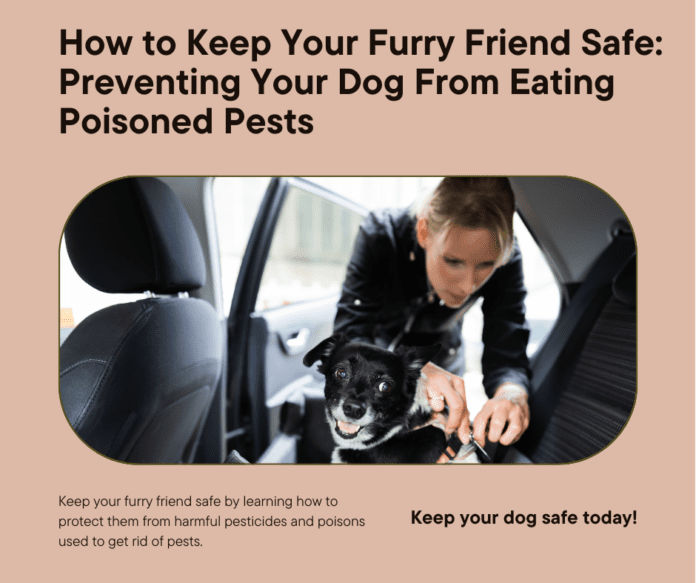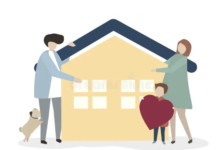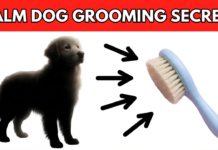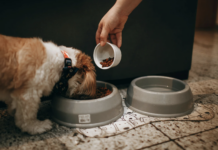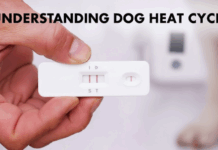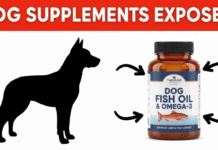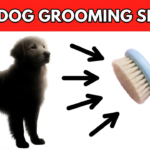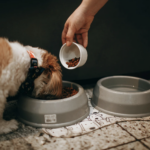Last Updated on April 2, 2024 by Dog Lover
How to Keep Your Furry Friend Safe: Preventing Your Dog From Eating Poisoned Pests
Ah, man’s (and woman’s) best friend! Our canine companions bring endless joy, goofy antics, and unconditional love into our lives. But as pet parents, keeping our furry friends safe is paramount.
And let’s face it, those wiggling noses and insatiable curiosity can sometimes land them in trouble, especially when it comes to encountering poisoned pests.
Fear not, fellow dog lovers! This comprehensive guide will equip you with the knowledge and strategies to shield your pup from the dangers of ingesting poisoned critters.
Understanding the Threat: Why Pests Pose a Poisonous Problem
Our backyards, parks, and even sometimes our homes can be battlegrounds for pest control. Rodents, insects, and other unwelcome guests often meet their demise thanks to various poisons readily available.
Unfortunately, these toxins can also pose a serious threat to our curious canine companions.
Here’s how your dog might encounter poisoned pests:
- Direct Ingestion: This is the most obvious scenario. Your dog might directly eat a rodent or insect that has been exposed to poison.
- Secondary Poisoning: Even trickier is secondary poisoning. This occurs when your dog eats an animal (like a rodent) that has itself consumed the poison.
- Contact Poisoning: Some pesticides can be absorbed through the skin or paws. So, even brushing against a treated area can be harmful.
The severity of the situation depends on the type of poison ingested, the amount consumed, and your dog’s size and overall health. Symptoms of poisoning can vary but may include vomiting, diarrhea, lethargy, tremors, seizures, and even internal bleeding.
Keeping Your Canine Companion Safe: A Multi-Pronged Approach
Now that we understand the dangers, let’s delve into the strategies to keep your dog safe from poisoned pests.
Here’s a multi-pronged approach you can take:
1. Fortress Fido’s Food Sources:
- Secure your trash cans: A overflowing trash can is a buffet for pests, and guess who might be tempted to join the feast? Make sure your trash cans have secure lids and are not easily accessible to your dog.
- Beware of fallen fruits: Fallen fruits in your yard can attract critters, so pick them up regularly. If you have fruit trees, consider fencing off the area around the base.
- Choose pet-safe pest control methods: Several pet-safe pest control methods exist, such as traps, bait stations inaccessible to dogs, and natural repellents. Consult a professional pest control company for recommendations.
2. Leash Law Enforcement:
- Maintain control during walks: Always keep your dog on a leash during walks, especially in areas where you suspect pest control measures might be in use.
- Avoid treated areas: Be mindful of signs indicating recent pesticide application and steer your dog clear of those areas.
3. Train Your Dog to Be Picky:
- “Leave it” command: Teaching your dog a strong “leave it” command can be a lifesaver. This way, you can prevent them from ingesting anything potentially harmful on walks or in your yard.
- Positive reinforcement is key: Use positive reinforcement techniques when training your dog. Reward them with treats and praise for following your commands.
4. Knowledge is Power: Educate Yourself:
- Identify common pests: Familiarize yourself with the types of pests common in your area. This knowledge will help you recognize potential dangers during walks or in your yard.
- Research common poisons: Learn about the different types of poisons used for pest control and their potential effects on dogs. This knowledge will empower you to act quickly if you suspect your dog has ingested something harmful.
5. Better Safe Than Sorry: Immediate Action in Case of Ingestion
- Act swiftly: Time is of the essence if you suspect your dog has eaten a poisoned pest. Don’t wait for symptoms to appear.
- Contact your veterinarian immediately: Call your veterinarian or animal poison control center right away. They will provide you with specific instructions based on the situation.
- Gather information: If possible, try to identify the type of pest or poison your dog might have ingested. Any packaging or leftover bait can be helpful for diagnosis.
Remember: Early intervention can significantly increase your dog’s chances of a full recovery.

Building a Strong Defense: Preventing Contact Poisoning
While we’ve focused on ingestion, remember that some pesticides can be harmful through contact. Here’s how to minimize that risk:
- Keep your dog away from treated areas: Don’t allow your dog to roam freely in areas recently treated with pesticides. If you’ve used a product in your yard, follow the instructions carefully regarding how long to keep pets off the treated area.
- Wash your dog’s paws after walks: After walks in areas where pest control might be common, wipe your dog’s paws with a damp cloth to remove any potential contaminants.
Living in Harmony with Nature’s Critters: Humane Pest Control Options
While eliminating pests is sometimes necessary, there are ways to achieve it humanely. Here are some eco-friendly alternatives to consider:
- Diatomaceous earth: This naturally occurring powder dehydrates insects and is safe for pets when used according to instructions.
- Natural repellents: Certain plants like peppermint and citronella have natural pest-repelling properties. Consider planting these around your home or using essential oil diffusers (with caution, as some essential oils are toxic to dogs).
- Exclusion methods: Sealing cracks and holes in your home can prevent pests from entering in the first place.

The Power of Partnership: Working with Your Pest Control Professional
If professional pest control is necessary, open communication with your exterminator is key. Here are some tips:
- Inform them about your pets: Always let your pest control company know you have a dog. This will allow them to recommend pet-safe methods or take extra precautions during application.
- Schedule treatments strategically: Discuss scheduling treatments when your dog can be safely removed from the premises for a designated period.
- Follow safety protocols: Meticulously follow all post-treatment instructions provided by your pest control company to ensure your dog’s safety.
Conclusion: Keeping Your Dog Safe From Poisoned Pests – A Continuous Commitment
Keeping your dog safe from poisoned pests is an ongoing responsibility. By implementing the strategies outlined above, you can significantly reduce the risk of your furry friend encountering harmful toxins. Remember, vigilance, education, and a proactive approach are your best weapons in this battle.
Live a happy and pest-free life with your furry companion!
FAQs
What are some signs that my dog might have been poisoned?
- Vomiting
- Diarrhea
- Lethargy
- Lack of appetite
- Excessive drooling
- Tremors
- Seizures
- Difficulty breathing
What should I do if I find a dead rodent or insect in my yard?
Wear gloves and dispose of the carcass in a sealed plastic bag. Wash your hands thoroughly afterward.
Can I use homemade remedies to keep pests away from my dog?
While some natural repellents might be effective, it’s crucial to consult with your veterinarian before using anything on your dog.
What if my dog gets into the trash can?
Use a secure trash can with a lid that your dog cannot easily open. Consider investing in a trash can with a locking mechanism.
How often should I have my yard professionally treated for pests?
The frequency of pest control treatments depends on the type of pest and the severity of the problem. Consult with a reputable pest control company for recommendations specific to your situation.
Reference Links:
-
American Society for the Prevention of Cruelty to Animals (ASPCA):
This link provides a wealth of information on pet poisoning, including a searchable database of toxic substances and a 24/7 Animal Poison Control Center hotline number: ASPCA Animal Poison Control Center: https://www.aspca.org/pet-care/animal-poison-control -
Environmental Protection Agency (EPA):
The EPA website offers resources on safe pesticide application and minimizing risks to pets and wildlife: EPA’s Pesticides: https://www.epa.gov/pesticides -
Pet Poison Helpline:
This nonprofit organization provides 24/7 animal poison control services for a fee. Their website also offers informative articles on various pet poisoning topics: Pet Poison Helpline: https://www.petpoisonhelpline.com/
